A strategic plan focused on equity and shared involvement.




A strategic plan focused on equity and shared involvement.



Lincoln University of Missouri, a historically black, 1890 land-grant, public, comprehensive institution, provides a diverse population access to excellent educational opportunities through teaching, research, and extension services within a nurturing, student-centered environment.
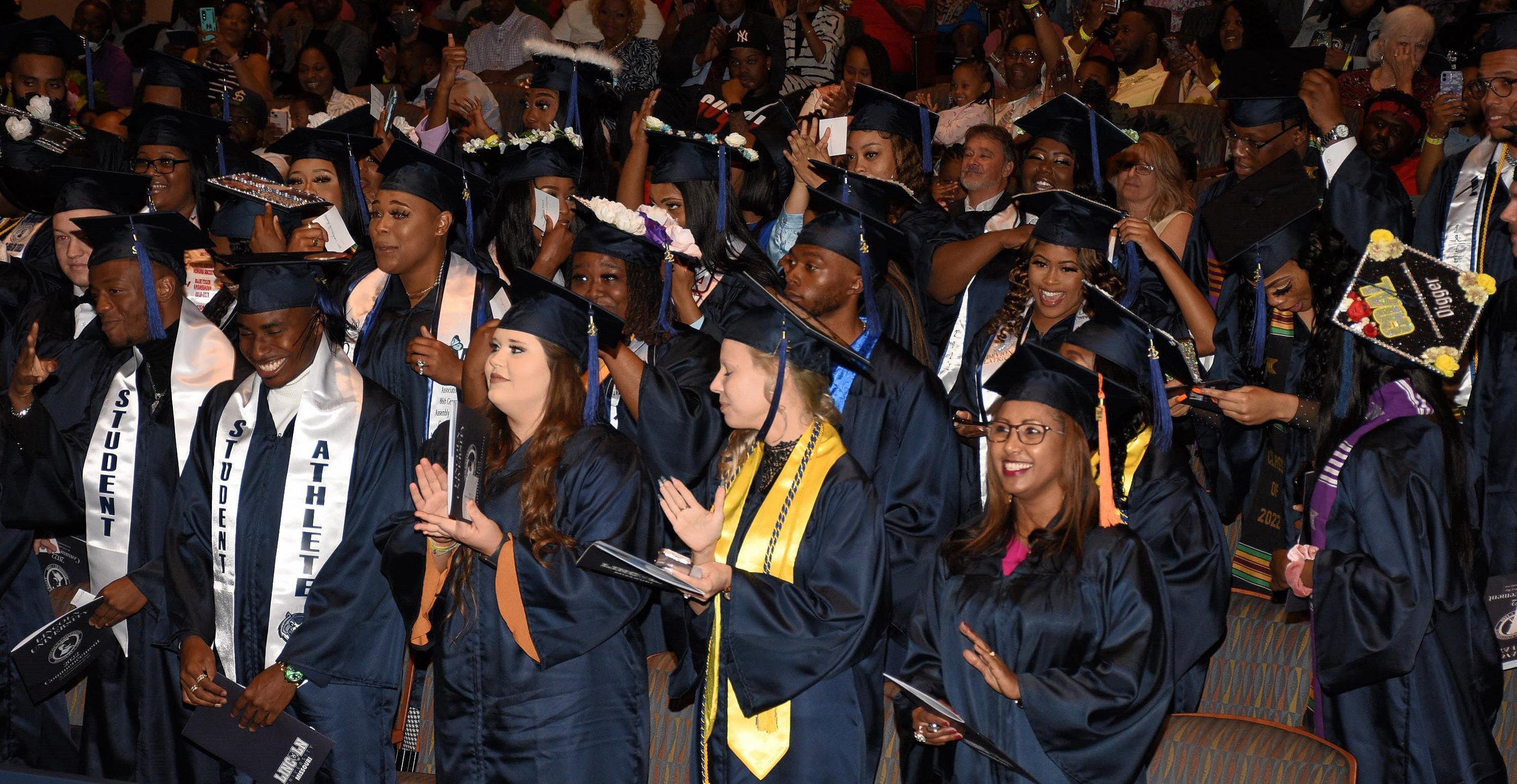
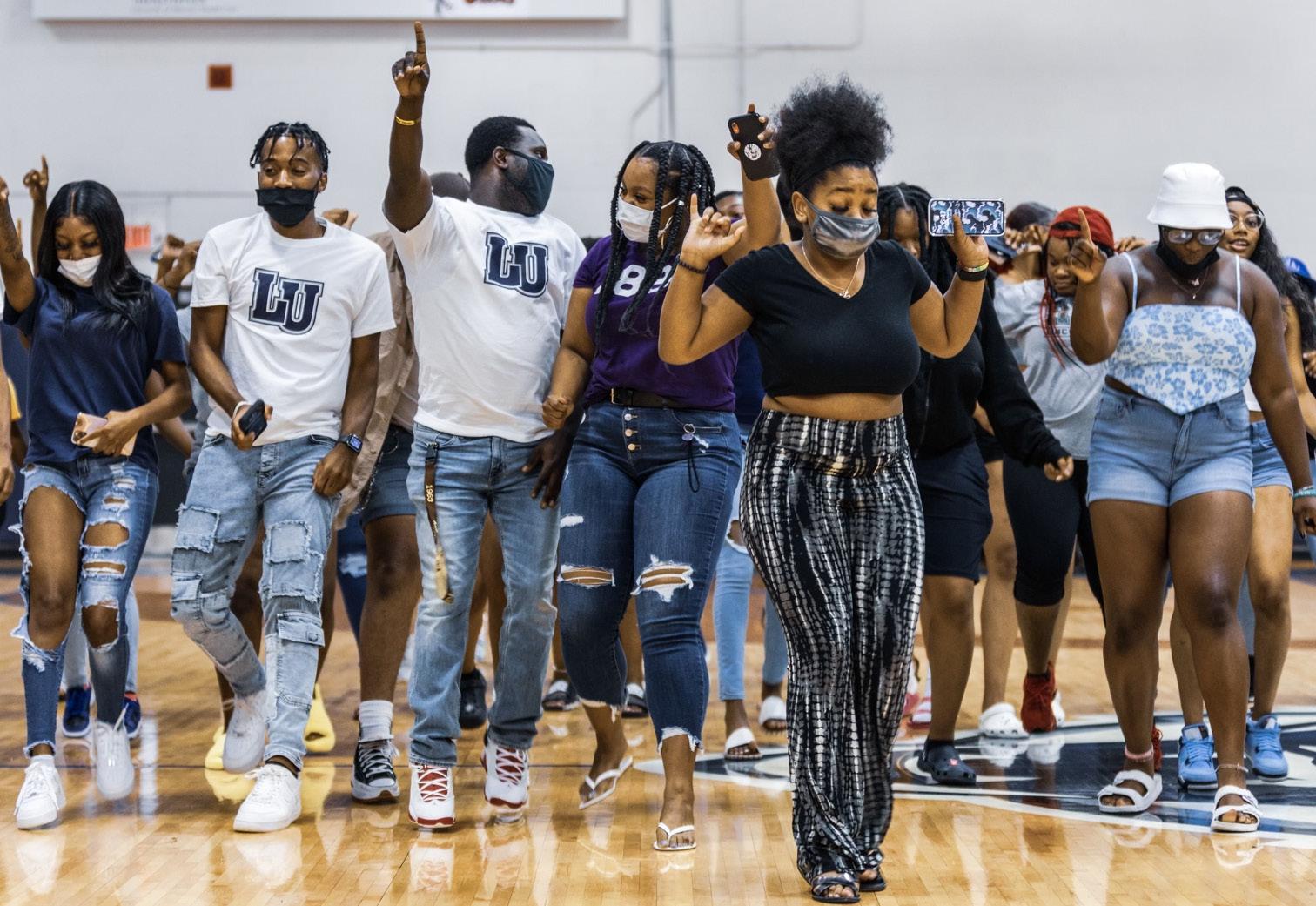
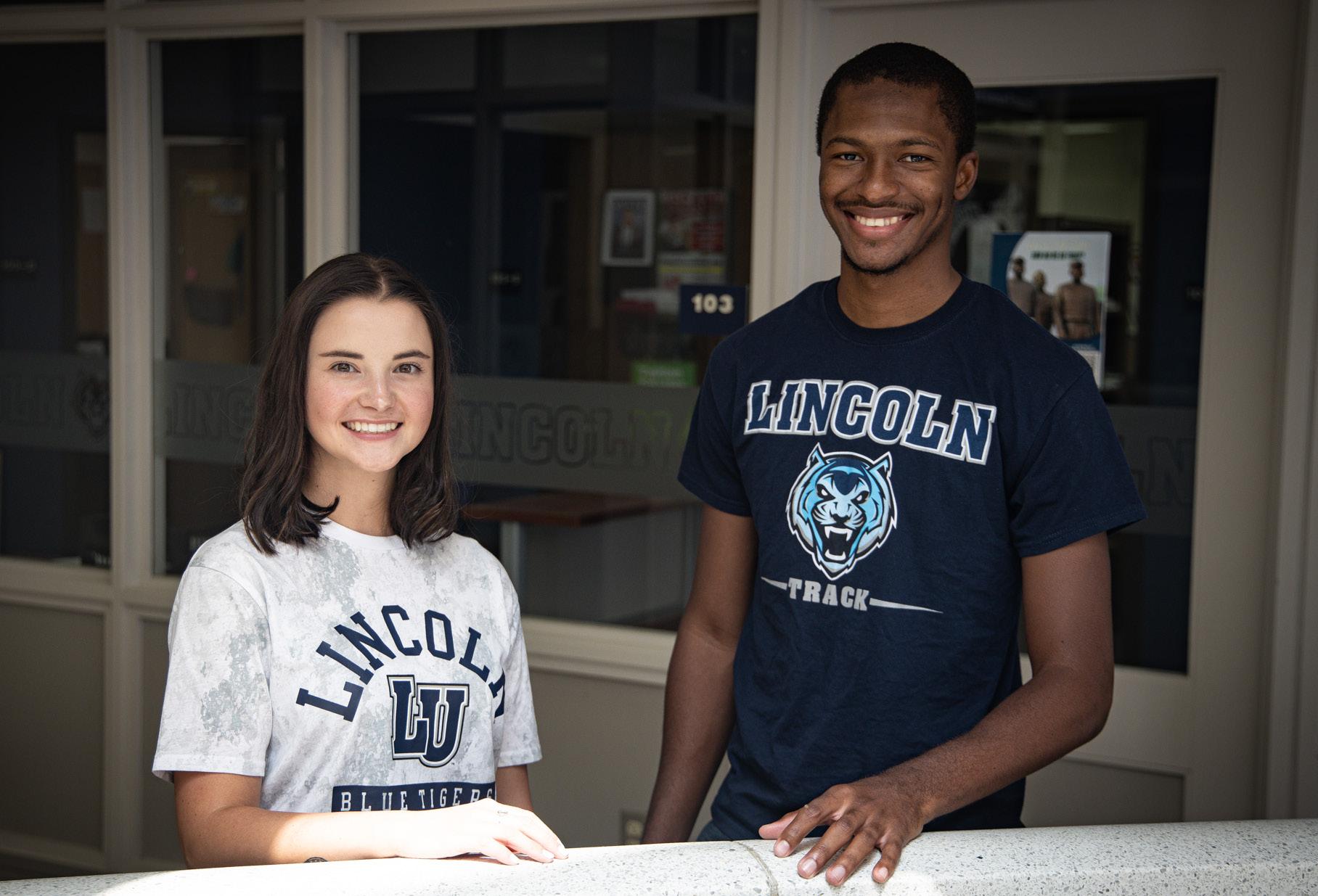
Lincoln University will consciously and consistently fulfill the promise of the Soldiers’ Dream: education and empowerment for all. All our activities, from an individual’s initial contact with the university through graduation, will be aimed at fostering a student-centered campus where positive relationships create lifelong engagement and commitment to our community. Through communication and collaboration across our diverse constituencies, we will build citizens who are competent in the global marketplace while being connected to their local communities.
During the 2018-2019 academic year, the strategic planning committee collected data and input from across the campus and local Jefferson City community. With representation from all key Lincoln University constituents, the core strategic planning committee and others gathered and analyzed institutional research data and surveys. Using this data, the committee presented a plan to the Board of Curators in November 2020.
During the 2020-2021 academic year, a second draft was modified by the administration and presented to the Board of Curators. Both plans included the same strategic priorities but utilized different tactics. In June 2021, Lincoln University had a change in leadership and appointed Dr. John B. Moseley as Interim President. Under Dr. Moseley’s leadership, the President’s Advisory Council assessed a variety of campus processes and procedures.
In February 2022, Dr. John B. Moseley was named the 21st president of Lincoln University. A team of internal and external members reviewed the previous strategic plan documents and made the following determinations:
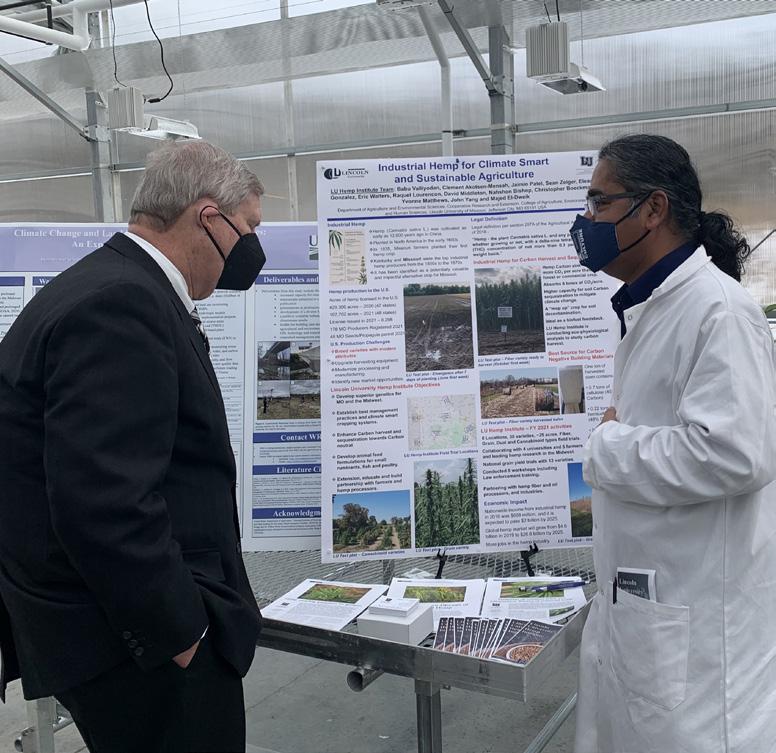
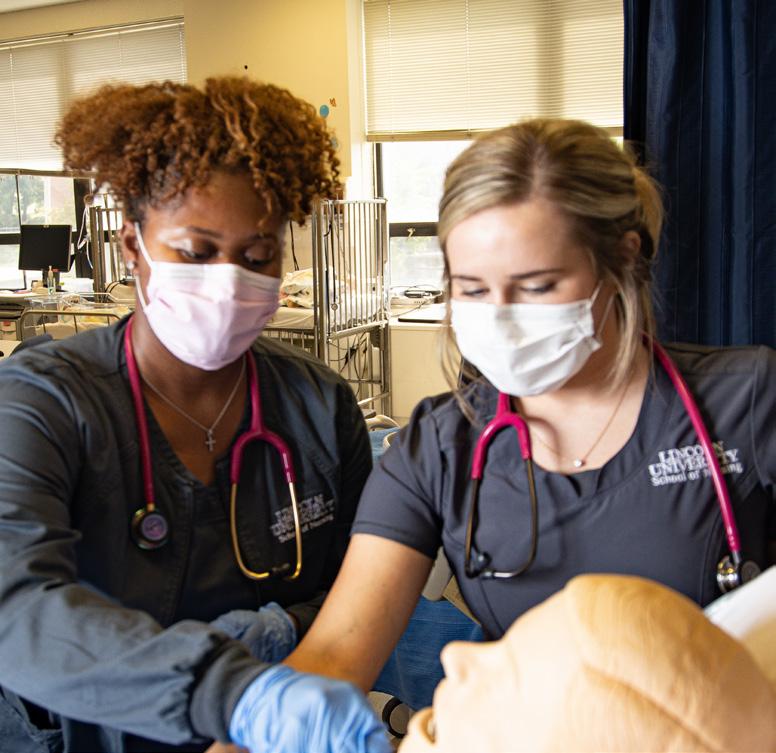
• In the spirit of our founding, equity in decisionmaking will be evident throughout the plan.
• In the spirit of inclusion, we will seek to build upon outcomes and initiatives resulting from systems of shared governance previously developed at the University.
• Due to internal and external workshortages with vendors, a cloud-migration of data systems, and internal workforce turnover it was not feasible to establish quality baseline data. A public-facing plan with high-level priorities will be presented to the Board of Curators that captures the current climate, challenges and opportunites.
• It is recommended that the University's next step, after strategic plan review and approval by the Board of Curators, will be to develop internal action plans across all departments that include baseline data, specific tactics, metrics and climate assessments of respective areas. The team recommends utilizing the Baldridge Excellence Framework, Core Values and Concepts during the action plan development.
• The strategic plan review team will conduct focus group feedback to include personal interviews with students, faculty, staff and alumni. Due to the impact of COVID-19, national and statewide trends, confidential focus group sessions can determine the current climate, beliefs and behaviors of our workforce and student body.
• It is recommended, as a strategic planning best practice, that a review of the Lincoln University mission, vision and core values should be conducted campus-wide with the engagement of students, faculty, staff, alumni and external stakeholders to ensure equity and inclusion.
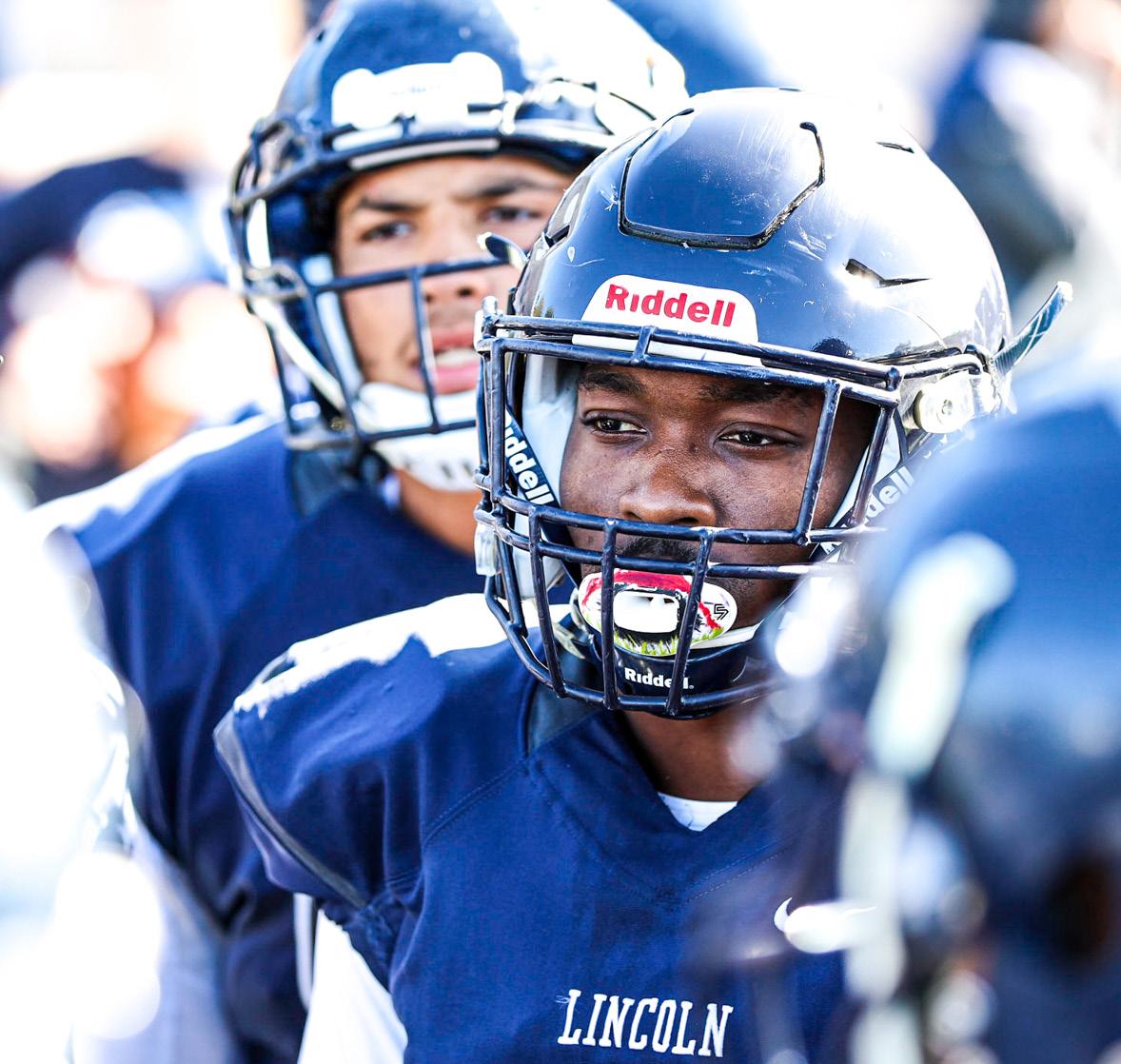
We value our Blue Tiger team members. Strategic plan research included interviews with 100 focus group participants and two years of survey feedback from internal and external stakeholders.
Supporting evidence for the current strategic plan initiatives includes the following data:
• 2022 Student Campus Climate Survey Results
• 2021 Satisfaction Climate Results (all stakeholders)
• 2021 Staff Council Survey Results
• 2022 Employee Group Sessions with Dr. John B. Moseley
• 2021 Student Campus Climate Survey Results
• 2022 Strategic Plan Focus Group Sessions
We will develop campus-wide action plans with baseline data, specific tactics, metrics and climate assessments of respective areas.
The Baldrige Excellence Framework for Education's core values and concepts were integral in the 2022 strategic plan review:
• Systems perspective
• Visionary leadership
• Student-centered excellence
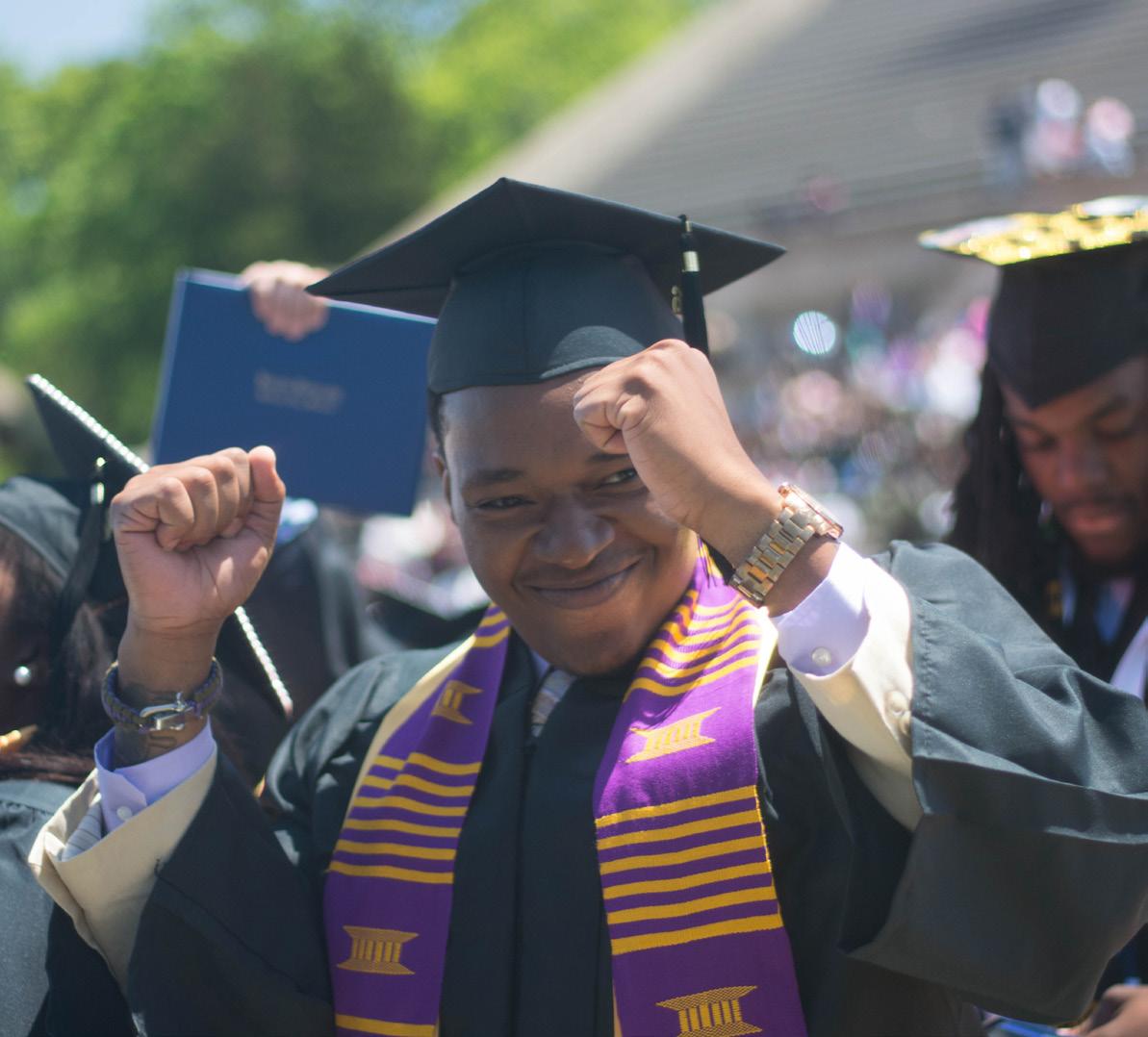
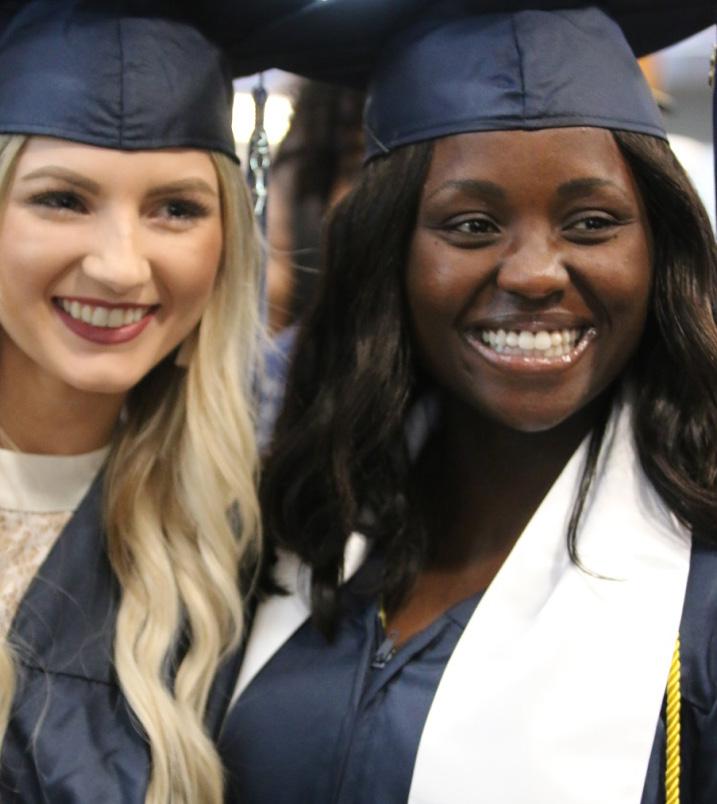
• Valuing people
• Agility and resilience
• Organizational learning
• Focus on success and innovation
• Management by fact
• Societal contributions
• Ethics and transparency
• Delivering value and results
Lincoln University will embrace students, faculty and staff of all backgrounds and cultures and fulfill our mission and vision for all.
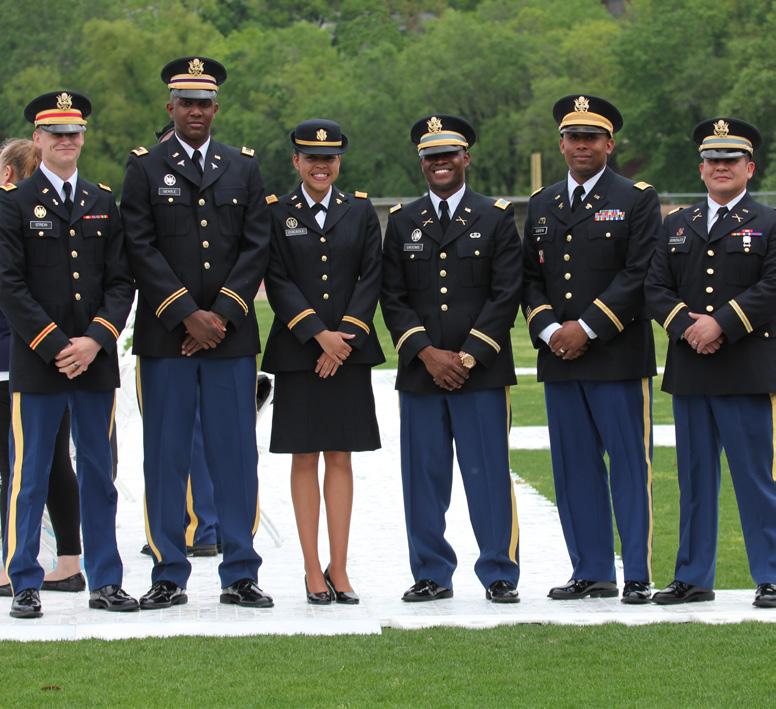
Lincoln University will provide access to a quality education, serving a diverse student population in a culturally responsive atmosphere. We will promote enrollment growth to support more students in achieving their college and career dreams.
1. Grow enrollment in strategically defined recruitment areas through improved visual brand awareness and systematic, sustainable recruitment processes
2. Increase partnerships with community colleges and universities to facilitate the increased transfer of students from other institutions for degree completion at Lincoln University
3. Engage and empower all alumni, University departments, and partners to participate in coordinated recruitment efforts
4. Increase students’ access to academic support and culturally engaging environments for incoming freshmen to improve enrollment outcomes and first-year student retention
5. Improve the use of technology and communication access for all students throughout recruitment and retention processes
6. Increase efforts to re-engage stopped-out students to return to Lincoln University for degree completion
Lincoln University will provide a supportive, studentcentered experience at all levels to ensure we meet the social, emotional, academic, and mental health needs of all students. We will cultivate supportive, encouraging campus relationships with students to build trust and increase students’ sense of belonging.
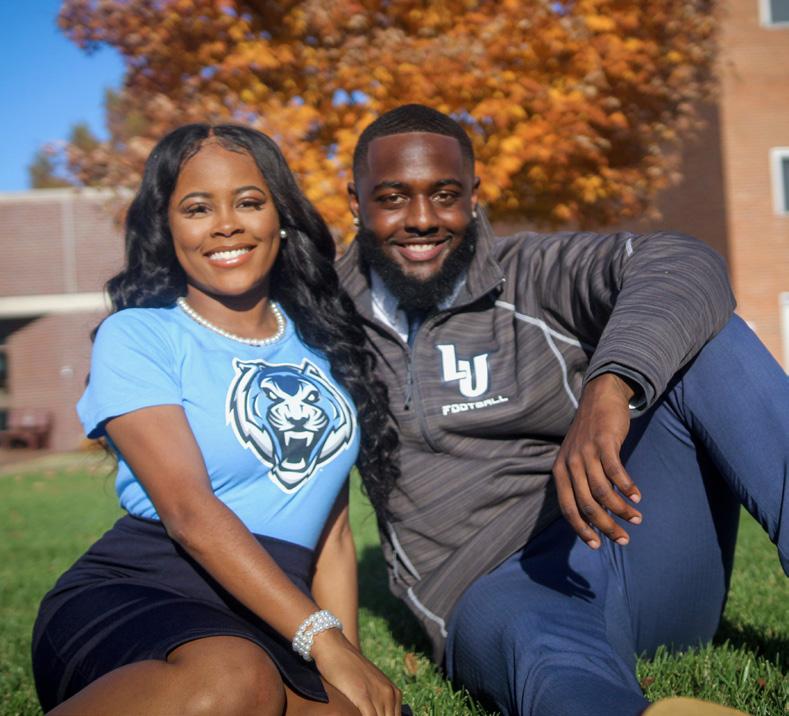
1. Incorporate discussion of social, emotional, academic, and mental health needs of students, as well as university support mechanisms for these needs, into New Student Orientation
2. Train faculty and staff to proactively implement holistic student support and ensure successful adjustment to college
3. Reimagine GE 101 and integrate new academic student program initiatives to prepare students for college life and increase their academic self-efficacy — inspiring their intent to persist and reducing barriers for success

4. Increase alumni and community participation and mentorship opportunities in recruitment and career placement events to further establish a meaningful network for underrepresented students
5. Enhance transfer student articulation agreements and support mechanisms to increase enrollment, improve the transfer student experience, and maximize degree completion
6. Actively integrate the use of technology to monitor student progress, engage with students and improve accessibility of student services
Lincoln University will build a culture of academic excellence that provides all students an exceptional learning experience. Through our commitment to excellence, we will support faculty achievement and enhance our institutional competitiveness for our students’ benefit.
1. Implement dynamic, high-impact practices throughout the curriculum for all students reflective of his/her/their learning abilities to achieve mastery of content
2. Expand professional development opportunities for faculty and staff to innovate, develop, and adapt culturally competent instructional models to ensure all students achieve success
3. Review and adapt academic programs with a forward-thinking lens to meet forecasted indemand markets and careers to increase students’ readiness to compete nationally
4. Assess learning outcomes and employ a culturally relevant pedagogy that promotes student success in a safe environment
Lincoln University will strengthen its financial position by cultivating sustainable resources and securing new operating revenues to better serve students. We will ensure stewardship of existing and new resources with efficiency, transparency and accountability.
1. Increase and diversify revenue through grants and sponsored research to leverage growth for University’s needs
2. Increase philanthropy through alumni, foundation, corporate and private partnerships to meet the University’s strategic needs
3. Allocate adequate resources to address critical deferred maintenance projects through the focused assessment and efficient use of available assets to a prioritized list
4. Increase financial resources to launch new certificate and academic degree programs that are competitive today and in future markets
5. Increase financial support for student scholarships and align philanthropic partnerships with organizations that demonstrate understanding of racial equity
6. Seek out and leverage minority- and womenowned businesses as a part of a transparent and accountable competitive bid process
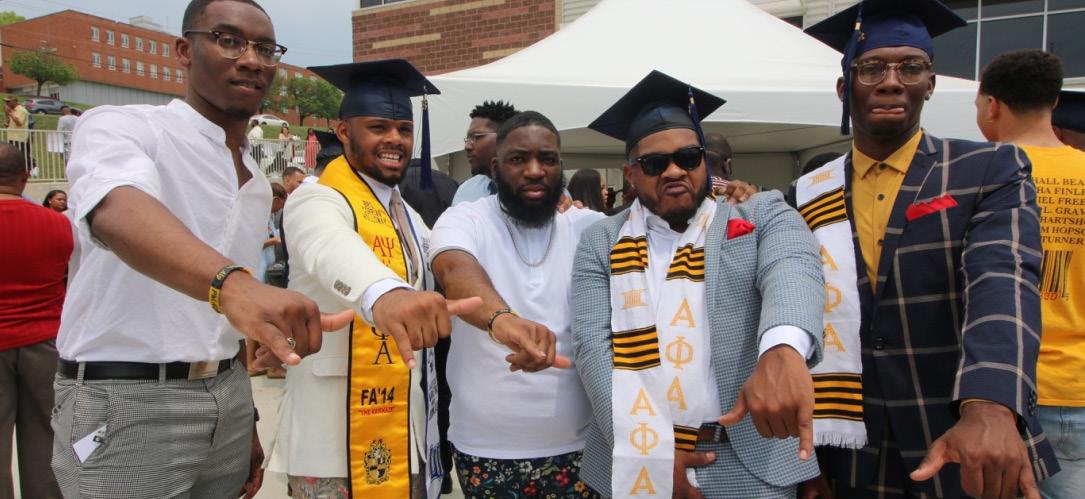
Lincoln University will expand collaboration, outreach, research and innovation opportunities to build upon the strengths of the University and LU Cooperative Extension & Research. With high-impact engagement at the local, state, national and international levels, we will address critical issues and improve quality of life for all, with particular focus on diversity and support for those who are socially disadvantaged and resourcelimited.
1. Foster positive relationships with elected officials in local, state and federal leadership offices to strengthen the University’s partnerships
2. Expand programs with neighboring K-12 and higher education institutions, government, and corporate partners to provide engaging internship and workforce readiness opportunities for students
3. Increase faculty, staff and student community partnerships to invest in community service and development efforts
4. Seek increased opportunities to collaborate and partner with local, state, national and global leaders through co-sponsorship of campus events, community outreach, and shared research efforts
5. Expand outreach and research to underserved and under-resourced communities, with emphasis on leveraging our agriculture background and expertise, to educate and empower
Lincoln University will embrace students, faculty and staff of all backgrounds and cultures to support the mission and values for all. With respect for all team members, we will foster an environment that seeks and values each voice, experience, culture and perspective.
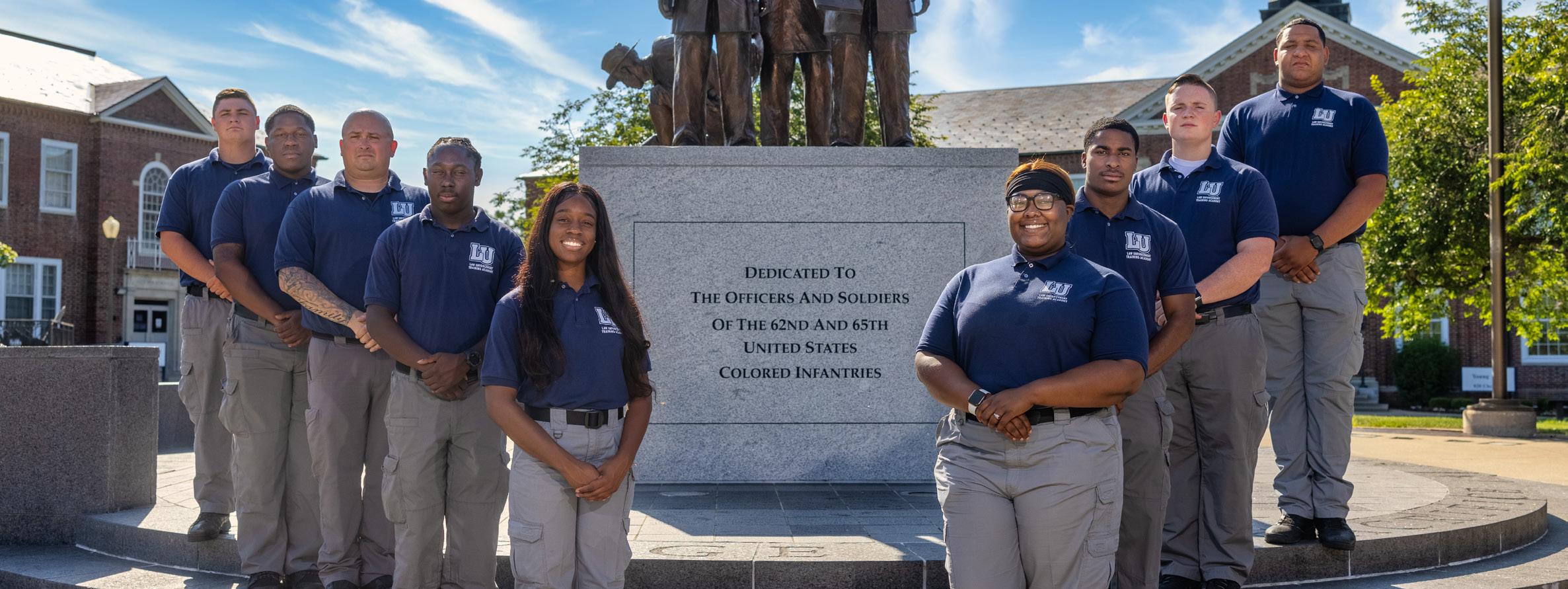
1. Create and promote a culture of customer service to build increased engagement and trust among students, faculty and staff
2. Expand student, faculty and staff workforce capacity through increased cross-departmental collaboration and professional development opportunities
3. Ensure accountability, with systems of faculty, staff and student co-governance, for strategic priorities
4. Create a diversity, equity, and inclusion plan, utilizing data to make equity-driven decisions
5. Improve strategies to recruit, support, and retain highly qualified and diverse faculty and staff who are committed to each Lincoln student's success
Lincoln University President's Advisory Council
John B. Moseley, Ed.D.
President
Jeffrey M. Barlow, M.P.A.
Vice President for Administration and Finance/Chief Financial Officer
Laura A. Bennett-Smith, M.A. Director of Strategic Initiatives
Zakiya T. Brown, Ed.D. Chief Student Affairs Officer/Dean of Students
Jeremy R. Faulk, M.A. Chief of Staff
Gary L. Hill, M.S.
Vice President for Campus Culture and Chief of Police
Sandra B. Koetting, M.B.A.
Vice President for Administration and Finance (retiring June 30, 2022)
Darius E. Watson, Ph.D.
Interim Dean of Enrollment Management
Kevin M. Wilson, Ed.D.
Vice President for Advancement, Athletics and Campus Recreation
Special thanks and recognition for contributions from:
Sunder Balasubramanian, Ph.D. Dean of College of Arts & Sciences
Jennifer R. Benne, Ph.D. Dean of Graduate and Extended Studies
Majed T. El-Dweik, Ph.D.
Dean/1890 Director Coop Research and Extension, College of Agriculture, Environmental and Human Sciences
Ann Marie E. McSwain, DHA, MSN, RN
Dean of College of Professional Studies
Mr. Ben Arnold
Mr. John Bax
Dr. Jennifer Benne
Mr. Brian Bennett
Dr. Eric Burgess
Dr. Majed El-Dweik
Mr. John Fandrey
Ms. Brianna Fankhauser
Mr. Carlos Graham
Dr. Amy Gossett
Dr. Sonja Jackson
Ms. Amy Miller
Dr. Tiffany Nolan
Ms. Tammy Nobles
Mrs. Beth Nolte
Mrs. Misty Nunn
Ms. Solana Parker
Dr. Marrix D. Seymore
Mrs. Jacqueline Shipma
Ms. Kala Smith
Mr. Jeff Turner
Mrs. LaKeisha Washington
Derald Davis, Ed.D. (He/Him/His)
Assistant Superintendent of Equity, Inclusion and Innovation, Kansas City Public Schools
Dr. Derald Davis is a Lincoln University graduate with a Bachelor of Science degree in education, social science, history and political science. He holds a Doctorate of Education from St. Louis University, a Education Specialist degree from the University of Missouri-Kansas City, and a Master of Science in Education from the University of Central Missouri.
With more than 25 years of experience in urban education as a teacher, principal, district leader and educational consultant, Dr. Davis currently serves as the assistant superintendent of equity, inclusion and innovation for Kansas City Public Schools. In that position, he is responsible for developing and advancing programs that enhance the values of diversity, equity, inclusion and belonging throughout the school system. Additionally, he oversees college access programming, postsecondary programming, dual credit, career and technical education, athletics, and a district-wide mentoring program which focuses on involving the entire metropolitan area in impacting the lives of students.
Jennifer O’Donley (She/Her/Hers)
Founder, CatchPhrase Communications
Jennifer O’Donley has more than 20 years of communications experience, working primarily with education clients to meet their strategic marketing and communication needs. She received her Bachelor of Arts degree from Westminster College and holds a Master of Arts degree in English from the University of Missouri-Columbia. Her experience includes work with enrollment and advancement, conducting research, strategic communications consulting, crisis communications and more, working with both large and small, public and private higher education institutions.
Her professional experience includes serving as the executive director of marketing and strategic communications and interim vice president for enrollment management at Westminster College.
Rebecca Babb (She/Her/Hers)
Sr. Operations/Human Resources Consultant
Rebecca Babb is a human resources compliance services specialist with over 20 years of experience working with businesses and law firms. She holds an MBA from Ashland University and Juris Doctorate from the University of Toledo College of Law. Currently admitted to the State Bar in North Carolina, South Carolina and Florida, she is certified with the Society of Human Resource Management (SHRM Certified Professional, SHRM-CP), earned an American Management Association certificate in HR Management, and a Diversity, Equity, and Inclusion in the Workplace Certificate from University of South Florida Corporate Training and Professional Education.
Babb specializes in assisting businesses with their HR needs via written policies, procedures, compliance, HR audits, process improvement, job descriptions, handbooks, onboarding, performance management training, and strategic planning.
Laura Bennett-Smith, M.A. (She/Her/Hers)
Director of Strategic Initiatives, Lincoln University
A 1995 Lincoln University graduate with Bachelor of Arts in political science, Laura Bennett-Smith has over 20 years of non-profit, education, marketing and strategic planning expertise. Her professional experience with Lincoln University began 2014, and she currently serves as the director of strategic initiatives.
She has served in leadership roles of serveral nonprofit organizations, including serving as the executive director of the Friends of the Missouri Governor’s Mansion and director of development for SSM Hospice and Home Care Foundation, the Children’s Home Society of Missouri and Lindenwood University.
Bennett-Smith holds a Master of Arts degree in corporate communications, with an emphasis in organizational development, from Lindenwood University.
Chief Gary Hill (He/Him/His)
Vice President of Campus Culture, Chief of Police, Director of Law Enforcement Training Academy, Lincoln University
Chief Gary Hill has been with the Lincoln University since 2016 and earned his Bachelor of Science in criminal justice from Lincoln University in 2001. He went on to receive his Master’s Degree in Administration of Criminal Justice Agencies from Columbia College and is currently a Criminal Justice Doctoral student at Northcentral University. Chief Hill is a graduate of the Federal Bureau of Investigations 239th National Academy Class in Quantico, Virginia (2009).
His criminal justice career began as a Corrections Officer at the Jefferson City Correctional Center in 1996. He joined the Cole County Sheriff’s Office in 1998 and was promoted through the ranks from deputy to sergeant to lieutenant to patrol division commander.
Chief Hill served on the Cole County Sheriff’s Office SWAT Team from 2001 to 2016, including holding responsibility as commander for more than 10 years. He played an intricate role in establishing the Central Missouri Tactical Officers Association and served as vice president of that organization from 2013 to 2016.
He currently serves as the Lincoln University vice president of campus culture and chief of police. He is also the director of the Lincoln University Law Enforcement Training Academy, the first HBCU police academy of its kind in the nation.